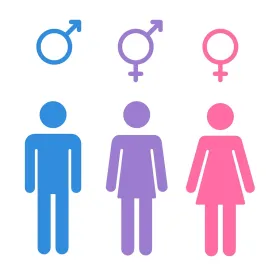“Sticks and stones may break some bones, but harassment can hurt forever,” began the United States Court of Appeals for the First Circuit’s January 25, 2018 (60-page) opinion in Franchina v. Providence Fire Department, a “sex-plus” discrimination case; the opening line foreshadowing the ultimate outcome of the appeal.
In the underlying trial of this matter, Plaintiff Franchina, a female former employee of the Providence Fire Department, submitted evidence that she had been subjected to several years of harassment while working at the Department, which she asserted was based on her gender. The first incident of harassment involved a male, subordinate Department employee who was a known sexual harasser, not only within the Fire Department, but also within the Court system (the First Circuit previously ruled in another case involving the same Fire Department employee, which it also notes in this opinion). Within minutes of their first encounter, this individual asked Franchina, “Are you a lesbian?” He went on, ridiculing her about whether she wanted children, and teasing that he could “help her” with that. On another occasion shortly thereafter, the co-worker greeted Franchina by calling her his “lesbian lover.” This conduct was reported to Fire Department management, not by Franchina, but by a male superior. Franchina testified that, ever after this report, she was subjected to name calling by male colleagues – things like “bitch” and “lesbo” – and other cruel treatment – such as poisoning of her meals at the station. Even a job reassignment did not stop the harassment, and instead, it escalated. At times, Franchina’s male subordinate employees engaged in such extreme insubordination that they put people’s lives at risk by refusing to provide life-saving care as Franchina directed.
At the trial, the jury found in favor of Franchina on both of her sex-based hostile work environment and retaliation claims. The Fire Department appealed the decision on the hostile work environment claim, asserting Franchina had not provided sufficient evidence that she had been harassed on the basis of her gender, but instead had shown evidence of sexual orientation-based discrimination, which the Department argued is not actionable under Title VII. Franchina’s evidence, they argued, “blurred” the lines between gender and sexual orientation. To support its argument, the Fire Department pointed to Higgins v. New Balance Athletic Shoe, a 20-year-old decision in which the First Circuit held that discrimination based solely on sexual orientation is not actionable under Title VII.
While noting that the First Circuit panel was not in a position to reverse Higgins (but pointing to the Seventh Circuit decision in Hively v. Ivy Tech Comm. College of Ind., which we blogged about here and here, that stated sexual orientation is gender discrimination), it highlighted that it need not reverse Higgins to find in favor of Plaintiff because her claim was a “sex-plus” discrimination case – one in which the plaintiff alleges that the discrimination occurred due to her gender, but also because of another factor; here, her sexual orientation. In this instance, the First Circuit pointed to the many gender-based epithets used toward Franchina, such as “bitch” and “Frangina” (a combination of Plaintiff’s name and “vagina”). The Court also referred to the initial sexual comments made by Franchina’s male subordinate, which the Court found are the “hallmark” of gender harassment. Based on this, the Court upheld the gender harassment verdict against the Fire Department.
Notably, the comments made to Franchina to which the First Circuit pointed generally arose, and in fact, are essentially indistinguishable, from Franchina’s status as a lesbian, thus illustrating the complexity of the sex versus sexual orientation claims. Even extreme hairsplitting often cannot disentangle the topics of sex and sexual orientation. Hence, the split in the Circuits on this very issue. So for now, employers should be aware that, even in those Circuits where the courts have held sexual orientation is not a protected status under Title VII (and assuming no state or local laws apply to the contrary), the issues are nonetheless, intrinsically intertwined, and should be treated as such. For this reason, employers should review their policies and internal practices to give consideration to these issues.




 />i
/>i

